
Chess Ratings
Have you ever wondered what the number that appears next to you after a game means? That is your chess rating, and this article tells you what that means and why it matters.
- What Is A Chess Rating?
- How Does A Rating System Work?
- How Is Each Player's Rating Adjusted?
- Rating Classes
- How Do You Play Rated Games On Chess.com?
- How Do You Check Your Rating On Chess.com?
- Conclusion
What Is A Chess Rating?
A chess rating is a tool that makes it easy to measure a player's probable performance against another opponent. It is expressed by a number that can go from 100 to (theoretically) infinity.
The highest rating ever achieved by a player is an impressive 2882 by GM Magnus Carlsen. Chess engines, on the other hand, can get to scores higher than 3400, making it nearly impossible for a human to beat them in a regular game.

How Does A Rating System Work?
Most chess associations and websites use either the Elo or the Glicko rating system to rate their players. The Glicko system—used on Chess.com—stems from the Elo system and is considered to be more precise because it takes into consideration more factors when calculating each player's rating.
The main feature to notice about a chess rating system is that it does not truly measure a player's strength. Instead, it uses a mathematical formula to determine the odds of each player winning, drawing, or losing a game based on the rating difference between the two players.
Often people who are not familiar with the nature and limitations of statistical methods tend to expect too much of the rating system. Ratings provide merely a comparison of performances, no more and no less.
— Arpad Elo, creator of the Elo system
To make this concept easy to grasp, let's analyze the following example. If two people rated 1500 play ten games, they would not necessarily draw every time. They would probably win and tie approximately the same number of games and end with relatively similar points at the end of the match.
However, if we replace one of those players with someone who is rated 1600, the expectations would be different. The stronger player would probably win more points but would most likely still lose or draw a few games during the match. This outcome happens because players can make losing mistakes or play bad games even when they are usually better than their opponents.
This situation is not unusual in chess. In fact, precisely because this type of "unexpected win" happens, we let you check what your best victory is while playing on Chess.com. Your best triumph probably occurred against an opponent rated higher than you.
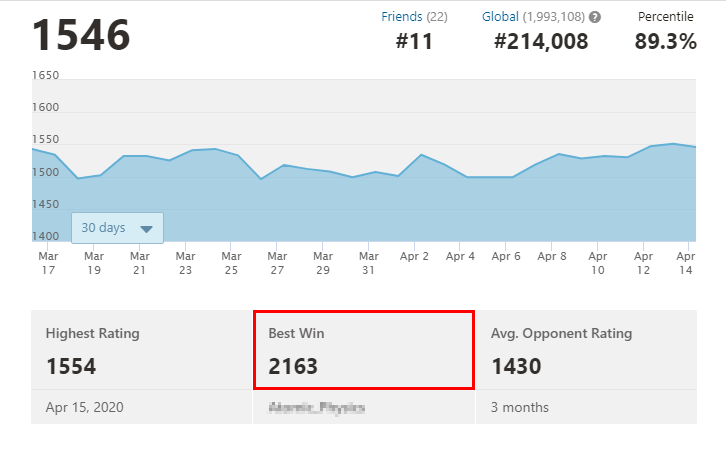
Exactly because ratings measure the probability of players losing, drawing, or winning against other players, ratings are specific to each pool of players measured. This means that the same player can have a different rating depending on what group of players they're being compared to. You can see this by looking at a player like GM Hikaru Nakamura: you'll notice his FIDE blitz rating and Chess.com blitz rating are different—even though it's the same player and time control, the player pools are different.
How Is Each Player's Rating Adjusted?
After every rated game, each player's rating is adjusted according to the outcome of the game. Because this is a calculation of winning or drawing probabilities and not of absolute strength, the amount of point variation after each game differs depending on the rating gap between the players.
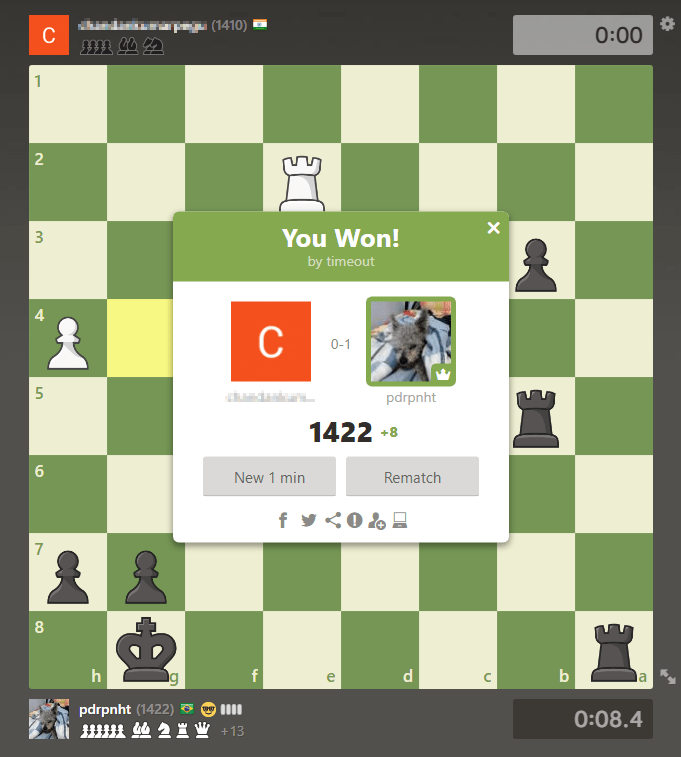
For example, if you are playing someone who is 300 points stronger than you, your opponent will likely win because he plays better than you most of the time. If that happens, it is the expected outcome, and your rating will not change much—sometimes it will not change at all.
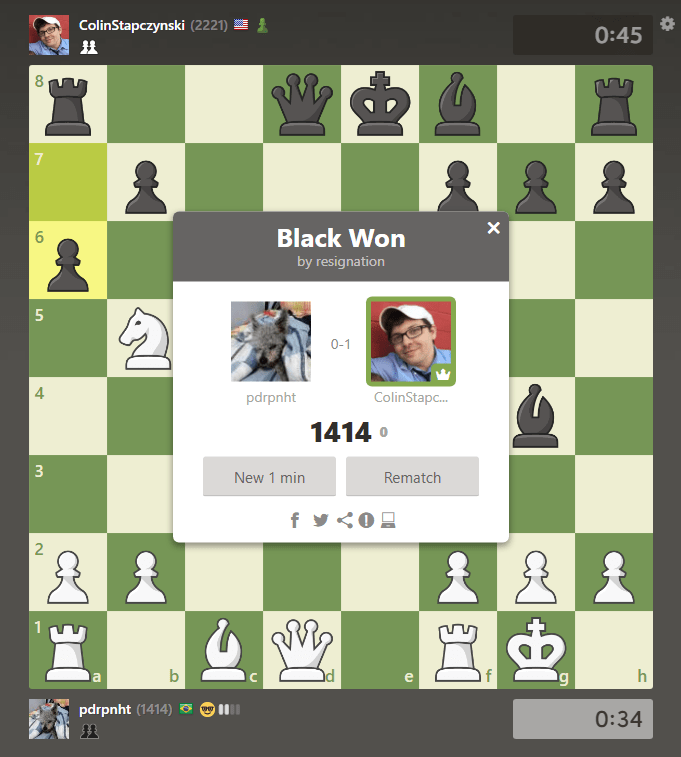
However, if you spot a crushing tactic that your opponent overlooked, you might win the game. What an unexpected turn of events! If that happens, you would be rewarded with a considerable rating increase because you exceeded expectations.
Finally, if you are playing against someone who has a similar rating as yours, each victory or defeat results in a small adjustment to your rating.
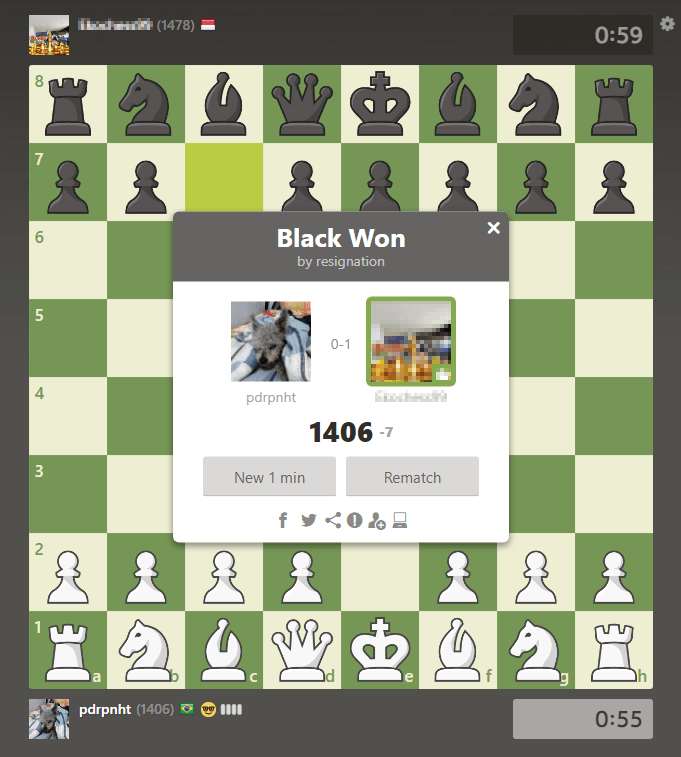
The chess rating systems, then, consider this aspect of the game when adjusting players' ratings to reflect their future chances of winning based on their past performances.
For this system to work, numerous mathematical calculations are needed every time a game ends. Luckily, Chess.com does that instantly for you after each rated match!
Rating Classes
Players can be grouped into different classes according to their rating. Within the U.S. Chess Federation, players are categorized as follows:
- 1200-1399: Class D, usually a beginner
- 1400-1599: Class C, usually an average club or tournament player
- 1600 - 1799: Class B, consistently above average
- 1800-1999: Class A, a strong club player who takes the game seriously
- 2000-2199: Expert, a serious player with considerable knowledge of the game
- 2200-2399: National master, an extremely strong and consistent player.
Do note that the numbers above refer to players' national ratings, which are usually around 200 points higher than FIDE ratings. As for FIDE ratings, the following categories apply:
- 2200-2299: Candidate master
- 2300-2399: FIDE master
- 2400-2499: International master *
- 2500 and above: Grandmaster *
* Players also need to earn norms to earn their title.
How Do You Play Rated Games On Chess.com?
Playing a rated game on Chess.com is simple. You only need to go to the Live Chess section, create a new challenge, and toggle on the "Rated" option.
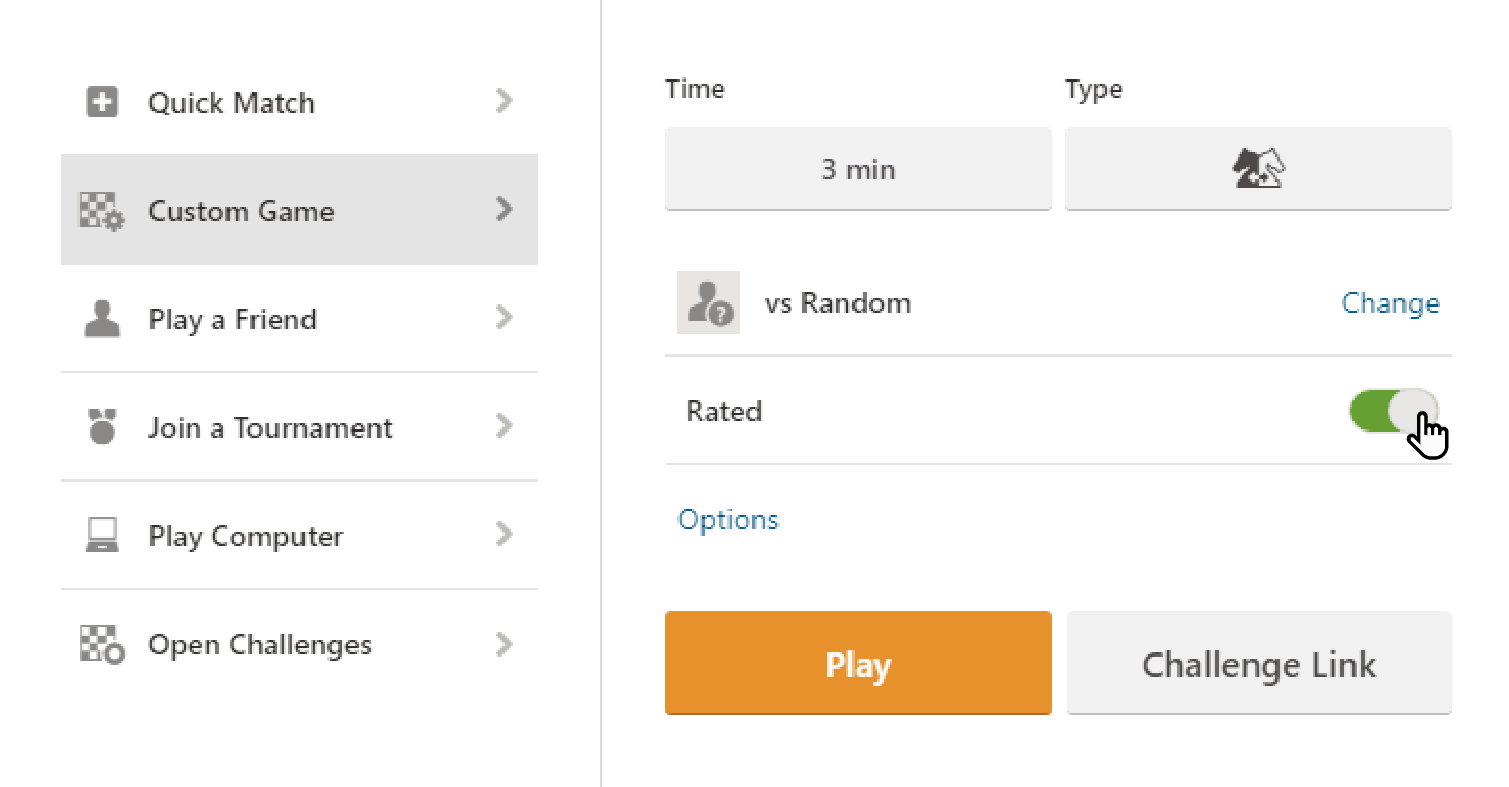
You can also select a rating range for your opponent by clicking on "Options" and adjusting the rating range to fit your needs.
How Do You Check Your Rating On Chess.com?
You can check your rating for each time control on Chess.com by going to your Stats page. There you can see your current rating, your chess ranking compared to your friends and the global community, as well as your rating history for each time control.
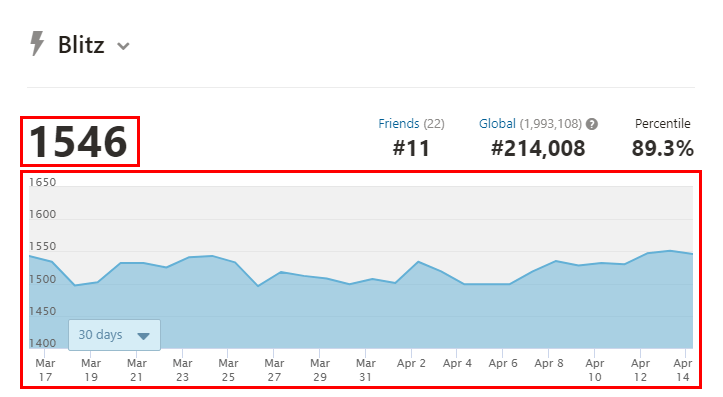
You can also find information about your average opponent's ratings when you win, draw, or lose a game.
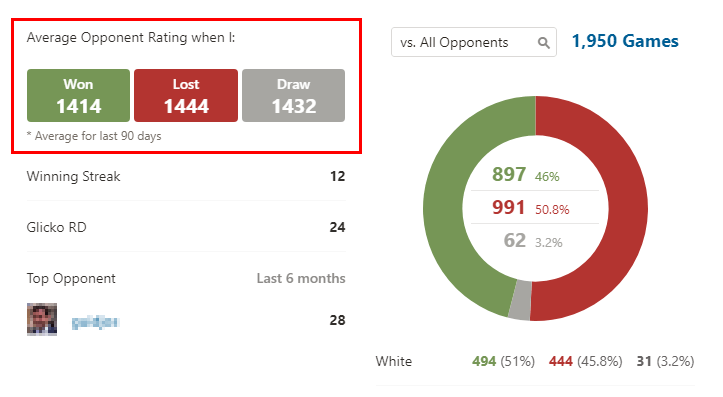
Conclusion
Now that you know what the number that appears next to your name means, it is time for you to start playing to increase your chess rating. Head over to Live Chess and create a new rated challenge now!







